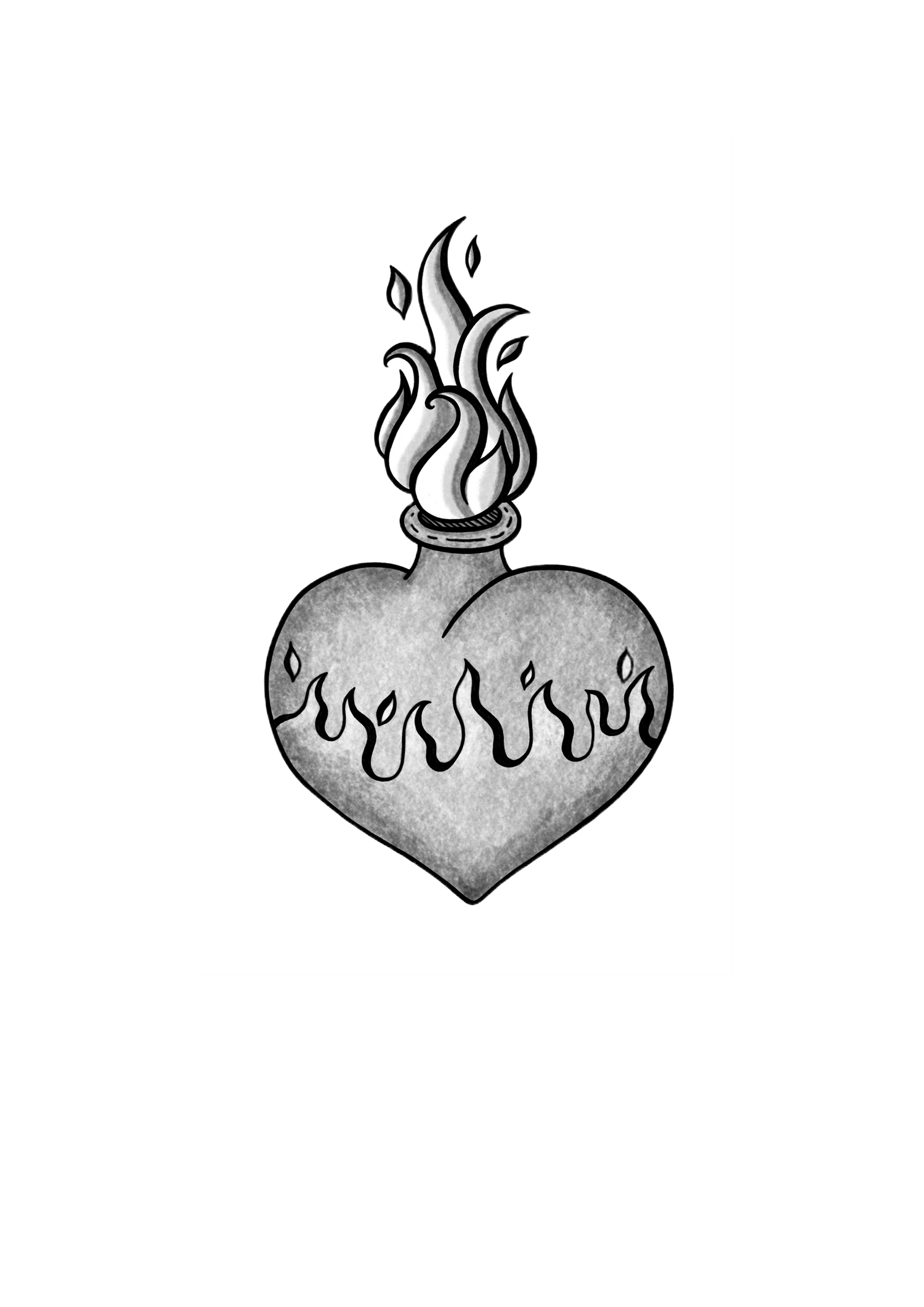Virtuoso by Carly Chandler
Miriam Rose found that the more she searched for the meaning of life, the more it evaded her. There were few things that brought her joy, but, more recently, she found that all her happiness was infused in the strings of her violin, her purpose was etched into the pads of her fingertips, and her inspiration was in the bruising on her jaw.
Miriam Rose found herself in a house with no name, left to her by her now late grandmother. The lawyer failed to disclose to Miriam Rose that her grandmother made the alteration to her last will and testament only fourteen days before she died, surrounded by family. Instead of wondering why her grandmother would leave her a house with no name, she traveled all the way from London to a small town in Oregon to wonder what she would do with the house.
It wasn’t a bad house – it was two stories high with flaking red paint and white windows crusted with dirt. The shingles on the roof were mostly intact, and the chimney was overgrown with winding ivy. No one had been maintaining the small yard, so it was a fight in itself to even reach the door.
Inside, Miriam Rose found that the house was altogether unstartling. The furniture was wrapped in plastic and she found photos of extended family members on the walls. She thought herself lucky to be between jobs – she thought the place needed a little bit of elbow grease and a fresh coat of paint and it’d be ready to go back on the market.
Never once did it cross her mind to live in the house without a name. She slept on an inflatable mattress in the drafty sunroom, adjacent to the living room with cobwebs decorating the walls like Christmas decorations. In the mornings, she found her way to the kitchen, where the only personal items she moved in were a coffee pot and her own cutlery. Her cousin had been given all of their grandma’s silverware after they took most of the antiques from the house. Really, all that was left in the house was the barest of furniture. Fixing the space was hard enough; filling it was a more daunting task than Miriam Rose was prepared for.
Weeks passed like this, sleeping on the cheap air mattress, cleaning and scraping and staining, waiting for the phone to ring with the next opportunity, waiting for the email that would bring her back to her favorite place in the world. Instead of any notifications, she found spiders and dirt and significantly more house than she knew what to do with.
It didn’t make her happy, doing all these things. It filled her mind, occupied her time, of course, but as the months dragged on, the only joy she found was at the end of the day, when the time began to spill into evening and the sun dipped below the horizon, and she would bring her violin into the old dining room she didn’t remember, and she would let the music she memorized drift its way from her fingertips to the strings.
Miriam Rose spent countless hours with her violin, transfixed by the instrument she’d devoted herself to for more than most of her life, feeling a different kind of music pulling at her. She felt as though a rope had been tied around her waist and it was tugging her along, beckoning her to follow.
One night, many months after her arrival to the house with no name, she’d finished painting the interior of the living room, and stood in the center of the room, debating whether she wanted to celebrate or fall into bed. She eyed the violin’s case, where it so lovingly lay, and she knew she was done for.
And it was the most beautiful song she played that night. Miriam Rose played with the windows open and the draft carried her song all the way up to the attic and down to the cellar, over the rocky shores of the Pacific and through the bristles of the evergreens that surrounded her house. The bow dragged its way across the strings, as if possessed, and the classical chords that Miriam Rose had learned all her life found themselves replaced by a tune that she did not know, lilting and shifting this way and that, perching its weight all around her and filling the cracks that had followed her for so long. She found herself in the rhythm, recognized herself in the melody, and she ignored the sunset tonight, her attention favoring her violin.
Her chest was heaving by the time she’d realized the sun was long set. She blinked – once, twice, taking in the room around her, settling in her seat. Plastic wrapped around each piece of furniture, edges were taped with dull blue painter’s tape, and the walls were painted a deep forest green. She lowered her hands, still holding the instrument and its bow, and the world’s color came back into tune.
In spite of the ache in her jaw and the rawness of her fingertips, she could feel a gentle melody humming in the back of her mind, mirroring her own songs. She let out a small, short breath, watching the house with no name come back to life – she set her violin and its bow in the case, throwing open the double doors to the sunroom.
The sun kissed her cheeks and the breeze wrapped its way around her uncertainty and washed it away; for one split, infinite moment, she could feel her eyes grow heavy and she didn’t wonder where the night went. Instead, she held her eyes open and invited the sunshine in, the melody drawing her through the house, like it had been before but complete, beautiful.
The house with no name was full.
Miriam Rose felt like she was on the stage again, and as she stepped back into the living room, color rose to life – there was no tape on the edges of the walls, nor was there any plastic on the furniture. Paintings and photographs lined the forest green walls, and a piano rested against the far wall, behind the couch. Her violin, sitting pretty in its case, rested on the ground beside a small card table with two wicker chairs.
She stepped through the living room, brushing a hand over the floral upholstery of the couch, approaching the piano. She pressed two of the keys in slow, melodic succession, and watched golden, growing flowers bloom into the wall, framing the upright piano. Miriam Rose, watched as she pressed another key, and a tall pine tree followed.
Inspired, Miriam Rose approached her violin, and she began to play. And the world came back to life.
“I scrapped this piece because the more I tried to write it like a ‘pretty piece of prose’, I just wanted to write a piece of horror. It wasn’t doing what I needed it to.”
Carly Chandler (she/they) is a queer experimental author from Louisiana who specializes in horror and poetry. They have previously been published in Argus Magazine, Demonic Verses, Words and Whispers Magazine, and their work is forthcoming in the inaugural issue of Toil and Trouble Magazine and Ilinix Magazine. Their Twitter handle is @carlywithawhy.

